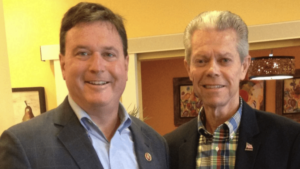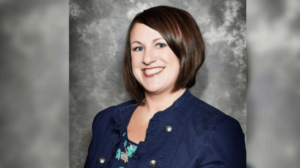“We were always taught that surviving is the most important thing. Because if you survive long enough you’ll make it.”
That adage has held true for David Berman through lean years and more profitable ones, but it’s advice anyone that does any kind of sales would benefit from today. Berman, the affable, polite, and grandfatherly figure walking the halls at Assured Partners Indiana carries himself with the heart of a teacher. It’s probably because he was almost going to be one.
A native of Louisville, Kentucky, Berman recalls, “In April 1972 my mother, who had been ill with cancer for about four years, passed away. I was scheduled to graduate from college the next month, in May 1972. I was educated to be a teacher and I interviewed with my hometown district in Louisville. They offered me a job to teach and coach. That job paid $5,200 a year. My wife and I got engaged probably a little earlier than we ordinarily would have, but we wanted to do it before my mom passed. And once we were engaged, I knew I couldn’t support a family on that salary.”
That’s when Berman heard from a fraternity brother who moved to Indianapolis. He was in the life insurance business and arranged several interviews with six of Indianapolis’ top agencies. “Of the six, five offered me a job,” adds Berman, “I was a little confused about the one that didn’t. So I went to that agency and asked why they didn’t offer me a job.”
In 1972, the process of hiring a sales agent was to take quantity over quality. “It was explained to me that the process was to hire 100 and hope 10 made it. This one agency head said he didn’t do it that way”. A newcomer to Indianapolis, aged 21 and with no local network to call upon, Berman knew he was a tough sell in and of himself. “I told him I respected his honesty but I was going to hang out on his doorstep until he got tired of seeing me. He evidently liked my persistence, because he ended up hiring me.”
Since then Berman has been consulting employers on their employee benefits programs, selling group and individual medical insurance, group life insurance, dental and vision insurance for groups and individuals, and other products like disability, auto, and home insurance. As time has marched on, Berman has started selling Medicare supplements and
prescription plans. Today, Berman recognizes himself as “something of a rainmaker” thanks to a lot of relationships that have turned into business opportunities.
“Admittedly, getting started was a bigger struggle than my boss envisioned.” In 1972 hanging out on the doorstep may have secured the sales job, but it didn’t fix the obvious problem of how you start selling actual products with no family or friends in the area to start with. “So I’d clip wedding announcements from the newspaper and do my research to make appointments and calls. Maybe 50% of the time they’d confirm an appointment, so already I felt like I was 50% a failure,” says Berman, adding, “It didn’t go particularly well.” Undeterred, Berman charged ahead reaching out to another group of people just starting their careers. “I started calling physicians and dentists in the medical schools in Indianapolis. I still have a significant number of them as clients today. They’ve stuck with me all these years and now they’re buying Medicare benefits from me.”
“I started calling physicians and dentists in the medical schools in Indianapolis. I still have a significant number of them as clients today.”
Berman’s approach may have worked 44 years ago, but young sales agents today would likely be talking to the police before a decision maker if they camped out on someone’s doorstep. Berman has a good idea of what he’d do today if he were just starting. “I’d align with an agency and with someone who could be a mentor. Someone who could work with me and teach me the business. I’d also probably target property and casualty insurance, because in my estimation, not that it’s easier, but by law most businesses and individuals have to buy something.” Businesses who need to buy worker’s compensation insurance, or private individuals in need of auto insurance represent what Berman sees as “more opportunities, as the general public is aware they have to have certain kinds of insurance just to do business.”
Berman adds age is still a barrier for young sales agents talking to much older customers. “That’s where the mentoring is crucial. The mentor can come with you to meet the decision makers,” hopefully removing any apprehension or hesitations for both sides.
“We always joked that certain people grow up wanting to be a doctor or a lawyer or a fireman. Nobody grows up wanting to be in insurance sales,” Berman says with a chuckle. Berman recognizes that most people getting involved in the insurance industry today come from a family where someone was in the insurance business. “We don’t find too many college graduates, though it’s changing as universities here in Indiana are beginning to offer insurance
programs.”
In the early 1980’s Berman kept growing his network by getting involved with the Life Underwriters association. “I was very young in my career and was involved in Life Underwriters and can remember succinctly the speaker I heard in the first or second year. He spoke on the philosophy that ‘people don’t care how much you know; they care how much you care’. That’s what I’ve used in my career. I work with people who are interested in how much I care about them or their family or their employees. Those people who have bene clients of mine for a long time.”
After years with the Life Underwriters, including time as an elected officer and President, Berman eventually made the move to the newly-formed Indiana State Association of Health Underwriters. There were no local chapters then, and meetings were held quarterly, but as the National Association of Health Underwriters grew at the start of the Clinton Administration in 1992, things hit their stride with the proposal of “HillaryCare”. “NAHU said we had to have a local and state chapter, so we did. The State chapter largely became the Indianapolis Association of Health Underwriters and we started a new organization for ISAHU.
More recently in the past 8 years with the Affordable Care Act have placed a lot of attention on the health insurance industry. “Looking ahead, regardless of elections, I don’t see the ACA changing dramatically. I think there’ll be a number of tweaks, and I know there’s a lot of conversations about ‘repeal and replace’, but the consumer disruption has been dramatic,” says Berman, quickly noting, “We are constantly spending time with customers and clients trying to find a way to get around their particular issue or program, and I think that’s going to continue.”
Berman, like many other industry observers, says we’re on our way to a single-payer healthcare system. “I’d hope it would be in a form where everybody has a basic coverage. I’d hope people would have the opportunity to “buy up” to get better services if one can afford it. I think it’s in England that everyone has a basic program, but they have the ability to buy-up to a “higher level of physician services” for things like a private room. For most of us, knock on wood, our
basic health services are adequate. But on occasion some people have special issues and special problems you have to have better service.”
For now, Berman still hits the road and drives thousands of miles a year meeting clients – including people in Louisville – and continues surviving. “Most of my clients are good friends. A lot of my associates do business with people who aren’t good or honest. I wouldn’t want to work for someone like that.”
Berman is the immediate past-President of ISAHU and serves on the IndianapolisAHU board. He also serves on various committees with the National Association of Health Underwriters






